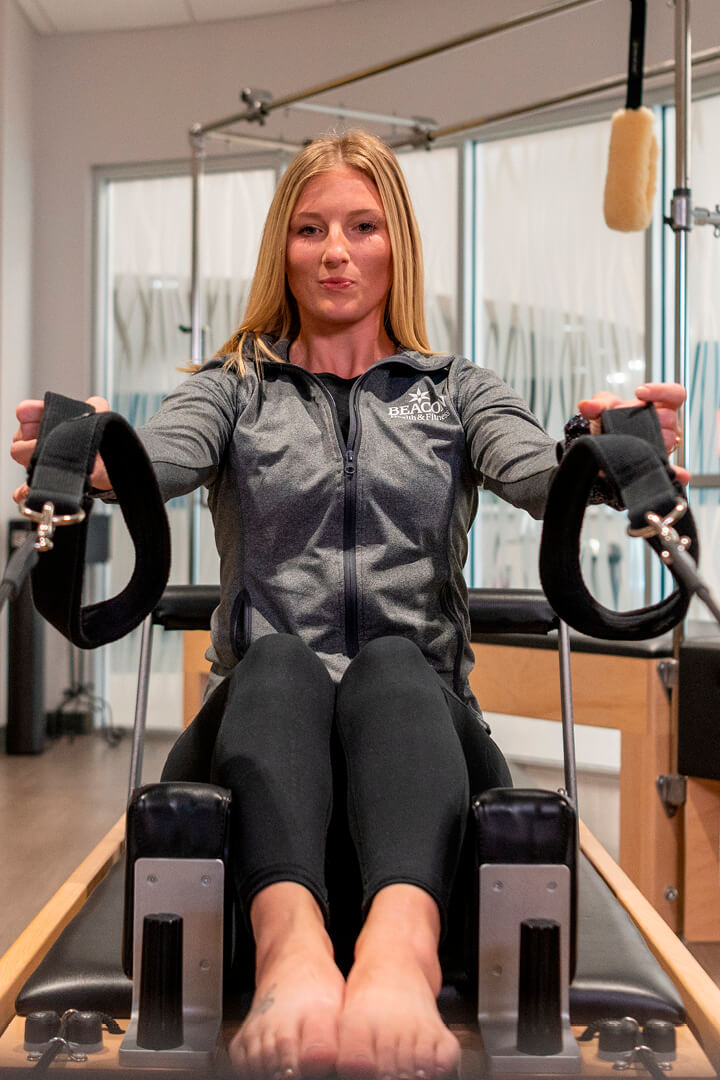One of the biggest demystifiers to the weight loss and maintenance process is simply accepting what, deep in our hearts, we’ve known all along: there are no magic bullets; this is steady, consistent work for the rest of our lives. Our positive attitude about the magnitude of the task is invaluable. Whole grains, vegetables, clean food, “real” food—nutrient-dense food as close to its pure form as possible—is almost always a good choice. We’ll have good days and bad, and the goal is more of the former and fewer of the latter. There’s no replacement for moderation. “Balanced eating is where I see the most success,” says Erica Weinandy, registered dietitian at Beacon.
These are the basics, but how people structure their attitude, moderation and balance is key. There are many paths to the same place.
Small, Consistent Changes for Big, Long-Term Impact
Weinandy says, about her years spent working with people trying to lose weight, “There’s not one thing that continually surprises me.” She does say that something perhaps discounted too much is the very difference of our bodies themselves. “If you have a slight food allergy or intolerance, it can cause digestive issues or inflammation and that can lead to weight gain.” Variations in gut health and a host of other factors can medically alter how one person loses weight as opposed to another and speaks to the importance of considering weight loss in the context of other health issues that might also need to be identified or changed.
Other tips from Weinandy include:
- Eat early in the day. “The role breakfast provides to us is help in not consuming larger quantities of calories at night.”
- Hydrate. “Sometimes we confuse fatigue with being hungry,” says Weinandy, “and sometimes when you’re dehydrated you feel tired.”
- Evaluate whether certain carbohydrates work against you. “Things like pastas and breads are really big trigger foods for many individuals—they often lead to other cravings.” Can’t have spaghetti without a big slab of garlic bread? Can’t have potatoes without a roll? “Switching out pasta with something like butternut squash noodles, can help break the connection from one high carb food to another,” says Weinandy.
- Allow a flex meal. “Allowing yourself one meal a week where you have your favorite foods can keep you from feeling like you’re missing out and make you less likely to binge when discipline wears thin,” Weinandy says. She recommends eating normally as you approach your flex meal so you don’t go in dangerously hungry, and then allow yourself a small burger or a slice or two of pizza. Practice both enjoying a treat and contentment with moderation.
And although we know different things work for different folks, a Cal Poly study from 2020 did find some critical commonalities among those who lost weight and kept it off. Compared to a control group, the weight loss maintainers reported more frequent use of strategies like setting daily food intake goals, recording what was eaten each day, measuring foods, thinking about past successes, and remaining positive in the face of weight regain. The researchers also found that these eating and thinking behaviors became easier and more ingrained over time in the group of those maintaining their weight loss.
Beyond these very notable methods of success, the game really opens up. But below is a list of tips, many that we’ve all heard before, to consider:
- Eliminate calorie-packed, metabolic-altering sugar
- Eat more fiber
- Reduce how much you eat out and pack a lunch if you eat at work
- Experiment with reducing your “eating hours” (intermittent fasting)
- Eat every 3-4 hours
- Make time for meal planning and meal prep every week—many people suggest giving an hour or two to this on the weekends
- Eat on smaller plates
- Make sure at least half of your plate is always vegetables
- Read labels/know how many calories are in the foods you eat
- Order kids’ portions at restaurants
- Eat slowly, mindfully; savor
- Use the no-buy it diet—don’t buy the food that’s not good for you; don’t keep junk in the house
- Be compassionate with yourself about setbacks; let a setback be just that—a temporary lapse, not an end to your efforts
- Use social networks and family to hold you accountable; ask for their support
- Acknowledge/reward your successes
- Focus on your feelings and behaviors, not the weight itself
Perhaps the best tip? In the face of all the information about weight loss, don’t be daunted. Merely move forward with one or two small steps at a time that feel right to you, and forget everything else. Add on gradually, enjoy food, enjoy your body moving in the world—and truly feel lighter.





